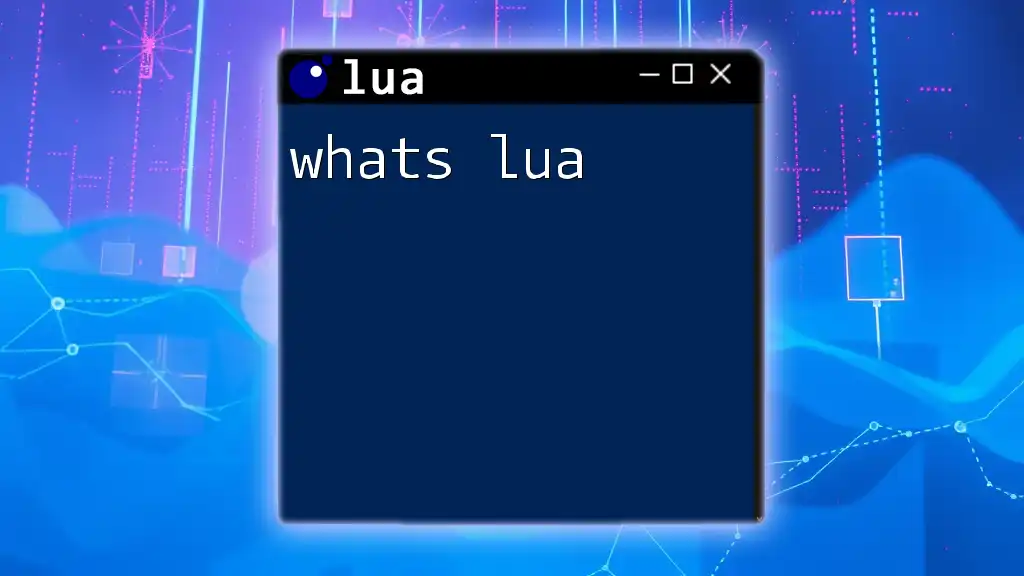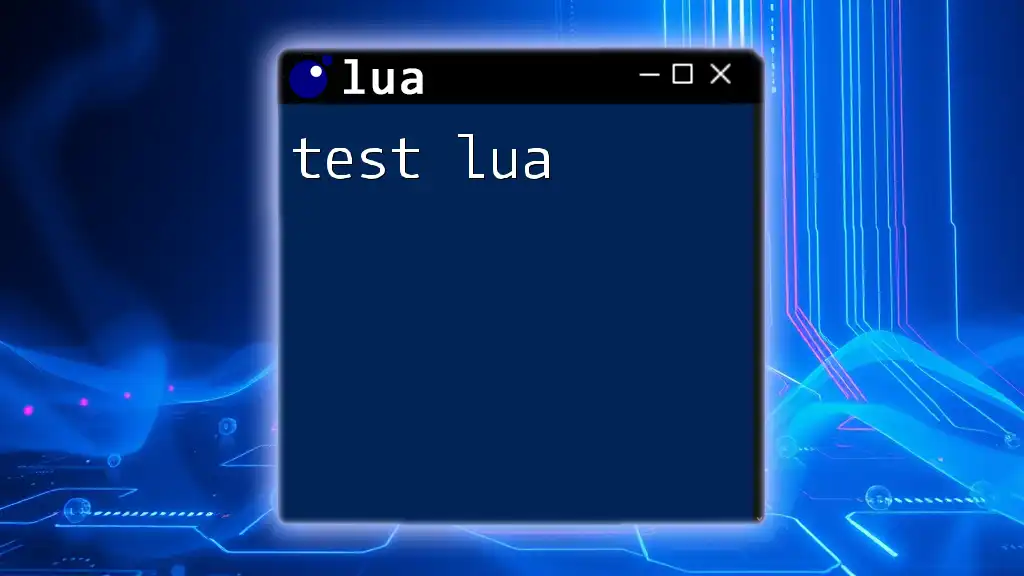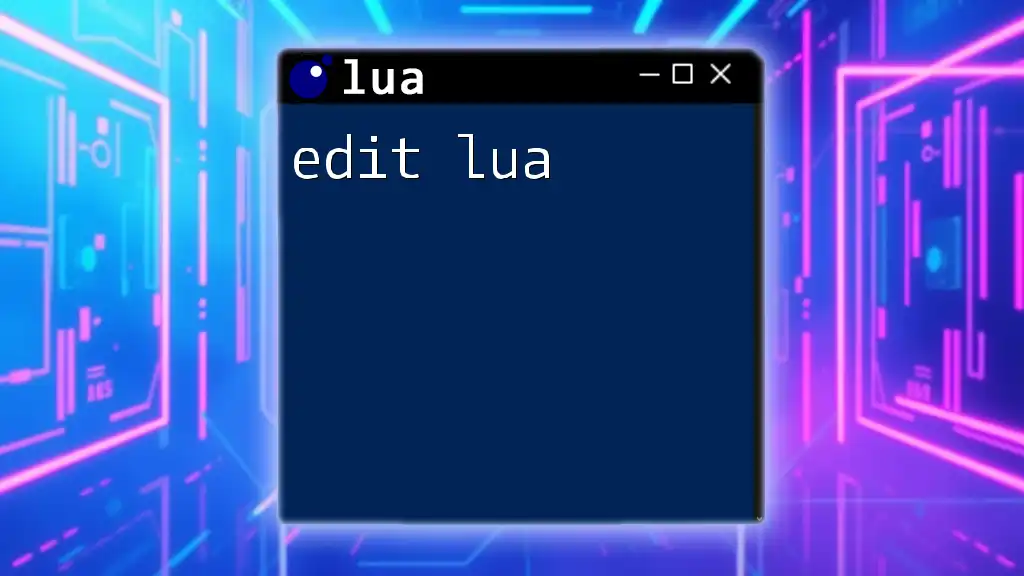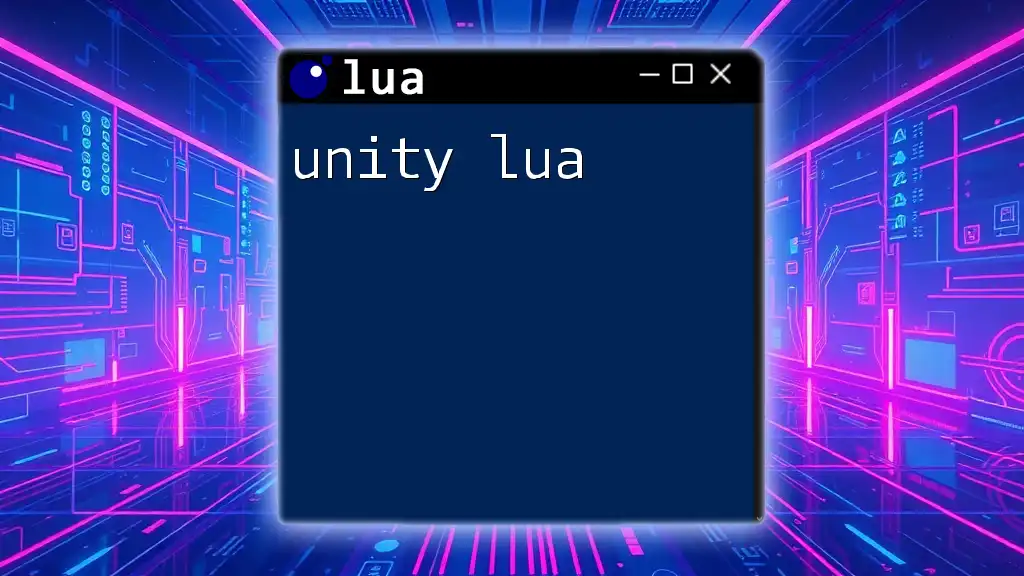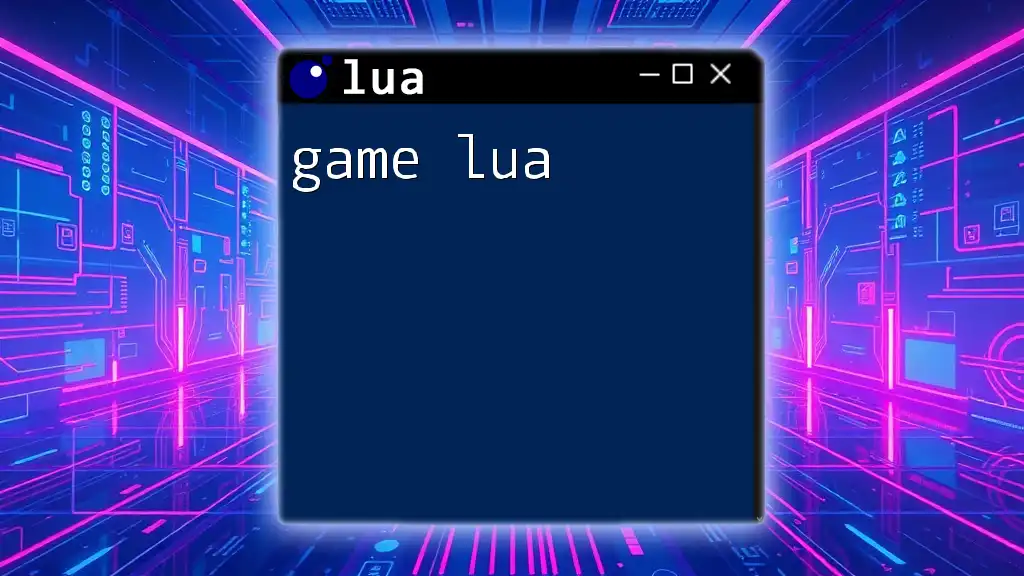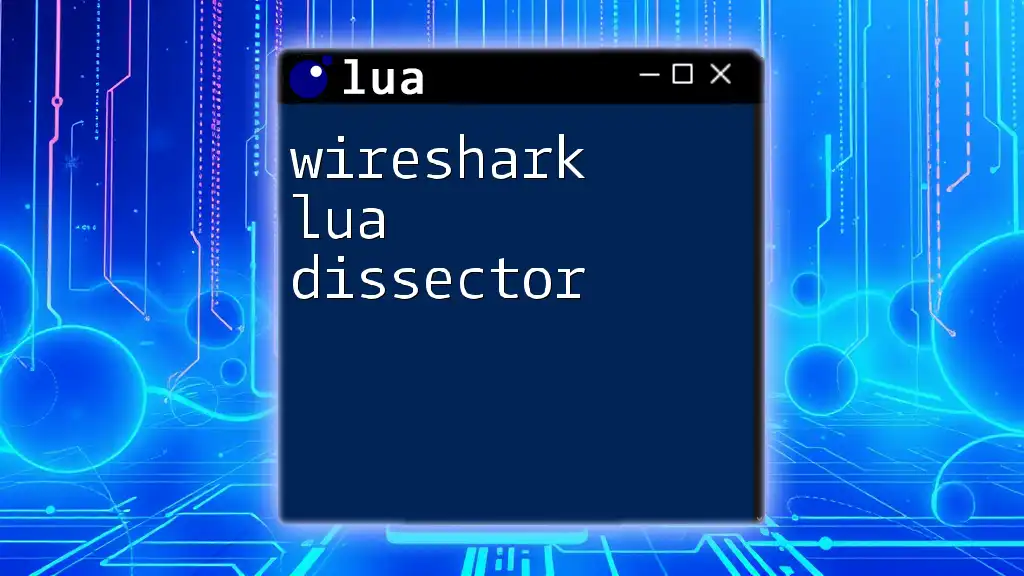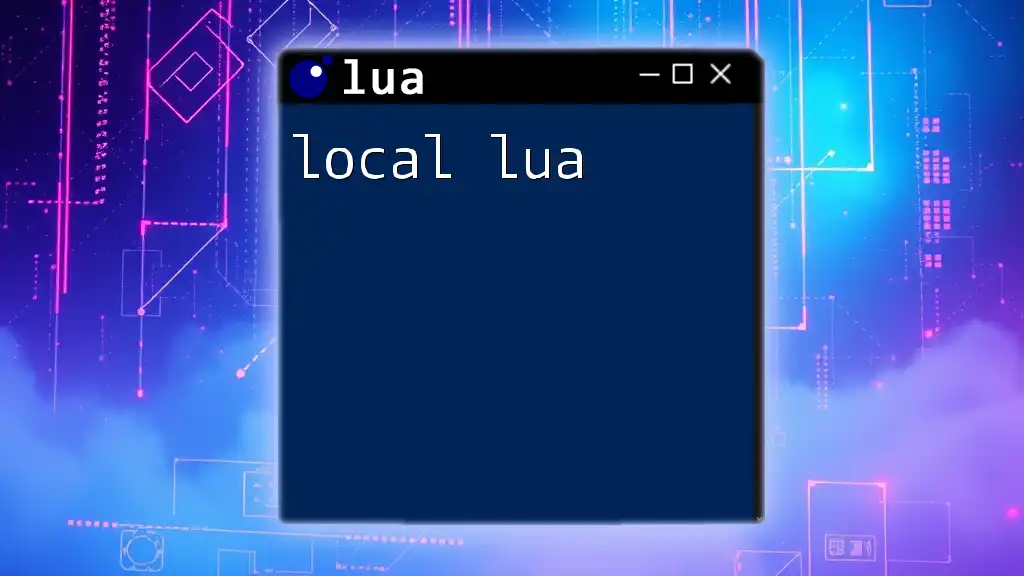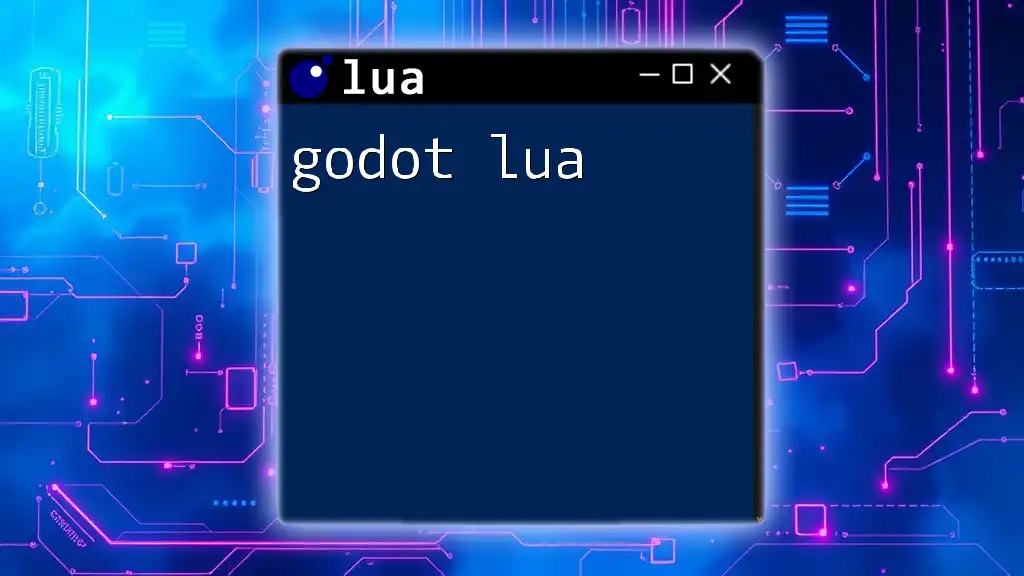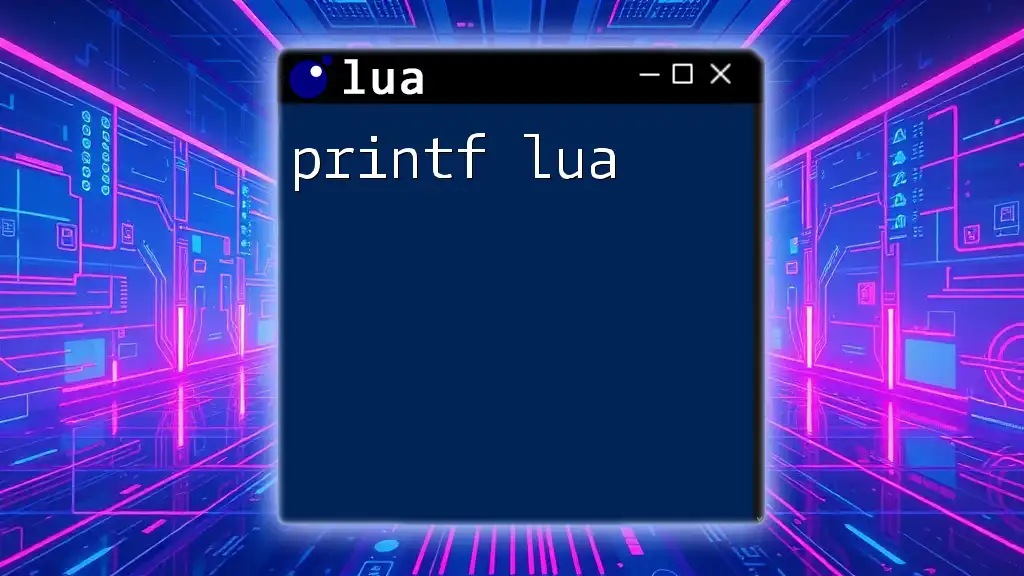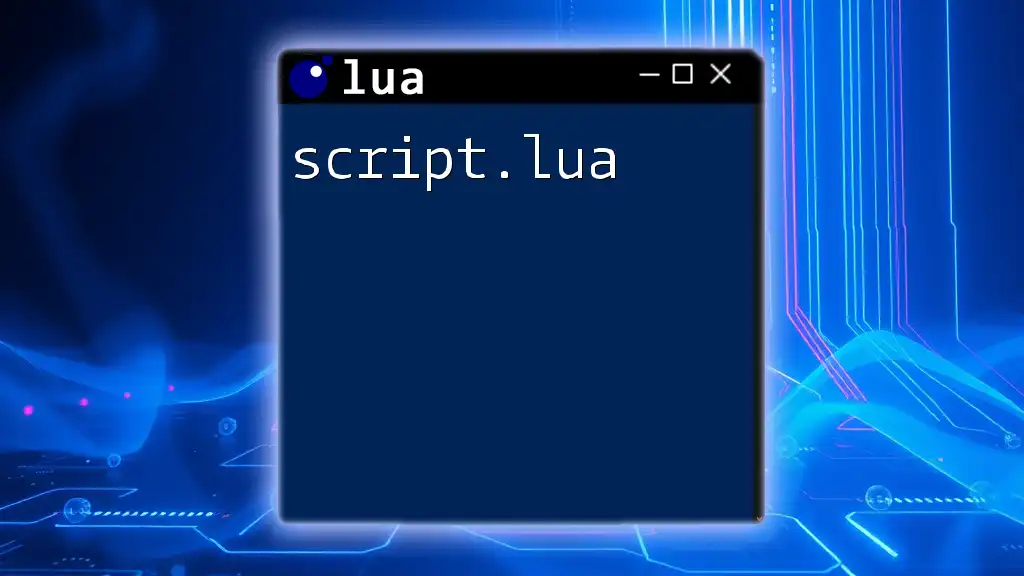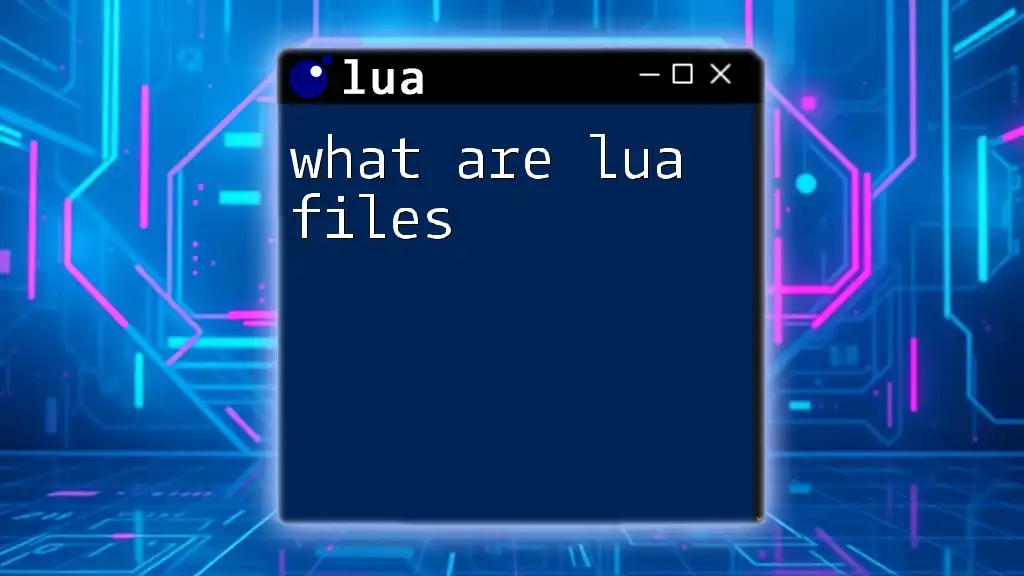Lua is a lightweight, high-level scripting language designed for embedded use in applications, known for its simplicity and efficiency.
Here's a simple example of Lua code to print "Hello, World!":
print("Hello, World!")
What is Lua?
Definition
Lua is a powerful, efficient, lightweight programming language designed primarily for embedded use in applications. It originated in Brazil in the early 1990s, developed by a team of computer scientists at the Pontifical Catholic University of Rio de Janeiro. The name "Lua" means "moon" in Portuguese, reflecting the language's bright prospects and versatility.
Lua has gained significant traction in various domains due to its simplicity, environment flexibility, and ease of integration with other programming languages.
Key Features
One of Lua's standout features is its lightweight and efficient nature, making it an excellent choice for performance-critical applications. It runs on all major platforms and has minimal requirements; thus, it is highly portable.
Lua is also known for its cross-platform capabilities, easily running on numerous platforms, including Windows, macOS, Linux, and even embedded systems.
An appealing aspect of Lua is its extensibility and adaptability. Developers can create libraries and modules, allowing tailored functionality for specific applications, thus enhancing Lua’s versatility as a scripting language.
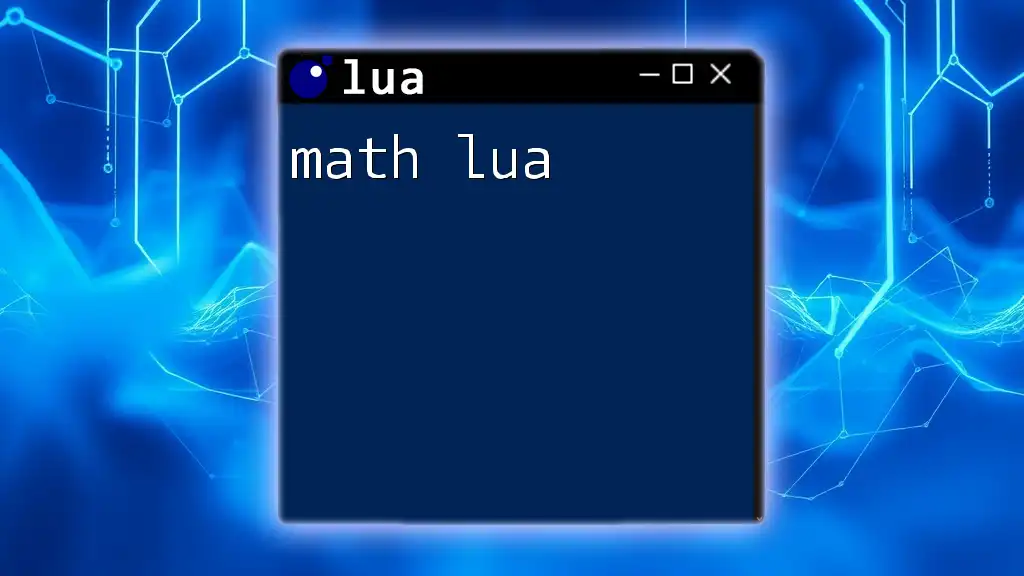
Why Use Lua?
Applications of Lua
Lua finds useful applications across various fields:
-
Game Development: Lua is widely adopted in game development due to its simplicity and speed. Popular game engines, including Unity and Corona, leverage Lua for scripting, enabling developers to implement gameplay mechanics easily.
-
Embedded Systems: Lua's lightweight design makes it perfect for embedded systems. Devices like IoT sensors and routers can run Lua scripts for configuration and operational tasks without consuming significant resources.
-
Web Development: Lua shines in web applications with frameworks like Lapis and Sailor, which provide an efficient way to develop web applications using this programming language.
Advantages of Using Lua
Developers choose Lua for many reasons, including:
-
Easy to Learn and Use: Lua's clean syntax and straightforward rules allow beginners to pick up the language quickly.
-
Fast Execution Speed: Lua is renowned for its fast runtime performance, enabling programs to execute quickly, which is particularly important for interactive applications.
-
Community and Library Support: A vibrant community surrounds Lua, resulting in numerous libraries and support channels, making it easier for developers to find solutions and help.

Basic Lua Syntax
Data Types
Lua has a few essential data types that are worth noting:
-
Numbers: Lua handles numbers in both integer and floating-point formats.
-
Strings: Strings are used to work with text data.
-
Booleans: Only two values, `true` and `false`, are present in the boolean data type.
-
Tables: Tables are Lua's primary data structure, serving to build arrays, dictionaries, and records.
Example: Here’s how to declare these basic data types in Lua:
-- Numbers
local number = 10
local float = 10.5
-- Strings
local text = "Hello, World!"
-- Booleans
local isLuaFun = true
-- Tables
local myTable = {key = "value", 1, 2, 3}
Variables
In Lua, you can define variables simply by assigning values to them. The language allows both local and global variables, offering a flexible approach for variable management.
Example: Defining and using variables:
local myVariable = 5 -- Local variable
globalVariable = 10 -- Global variable
print(myVariable) -- Outputs: 5
print(globalVariable) -- Outputs: 10
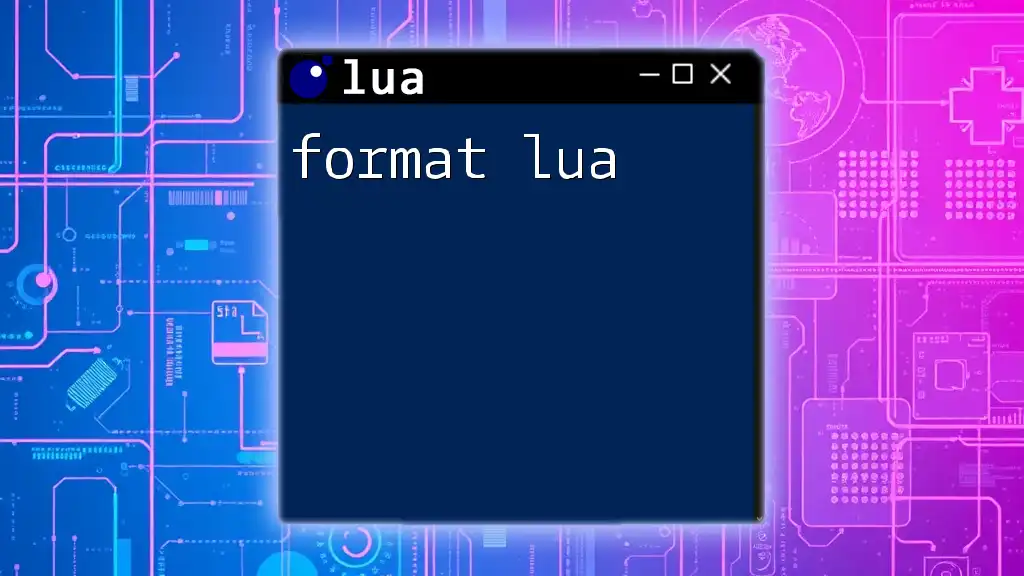
Control Structures in Lua
Conditional Statements
Conditional statements in Lua, similar to many programming languages, evaluate expressions and execute code blocks based on the results.
The if-then-else construct follows this format:
local score = 85
if score >= 90 then
print("Grade: A")
elseif score >= 80 then
print("Grade: B")
else
print("Grade: C")
end
Loops
Loops in Lua let you execute a block of code multiple times. Lua supports both for and while loops.
Example: For loop demonstration:
for i = 1, 5 do
print("Iteration: " .. i)
end
Example: While loop demonstration:
local count = 1
while count <= 5 do
print("Count: " .. count)
count = count + 1
end
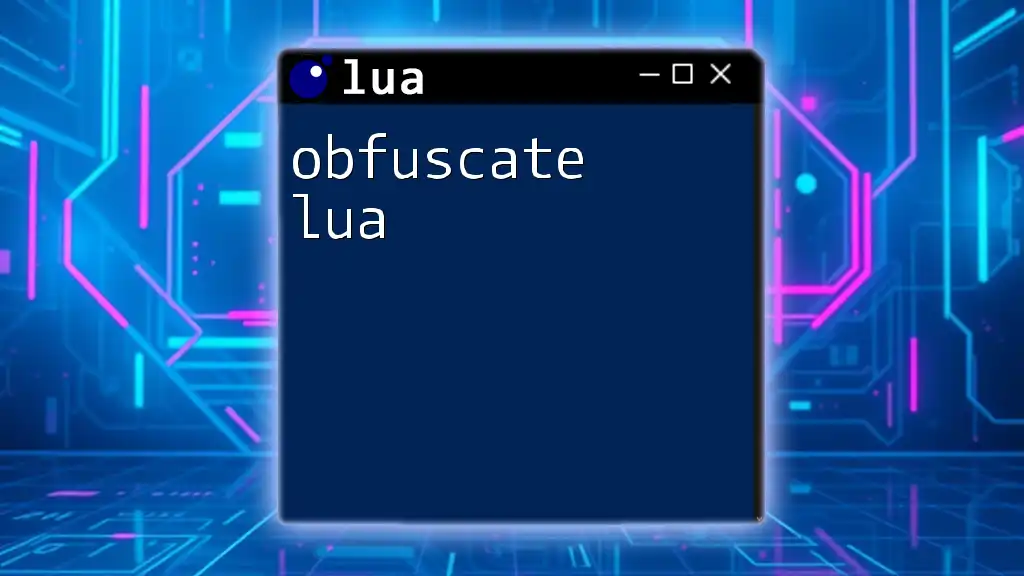
Functions in Lua
Defining Functions
Functions are crucial for organizing code and enabling reuse. You can easily define and call a function in Lua.
Example: Simple function definition and invocation:
function greet(name)
print("Hello, " .. name)
end
greet("World") -- Outputs: Hello, World
Scope and Local Variables
Lua offers both local and global variable scopes. Local variables are created using the `local` keyword, ensuring they are only accessible within the function or block they are defined in.
Example: Demonstrating local vs. global variables:
function scopeExample()
local localVar = "I am local"
globalVar = "I am global" -- No local keyword assigned, making it global
end
scopeExample()
print(globalVar) -- Outputs: I am global
-- print(localVar) would return nil since it is not accessible outside the function.
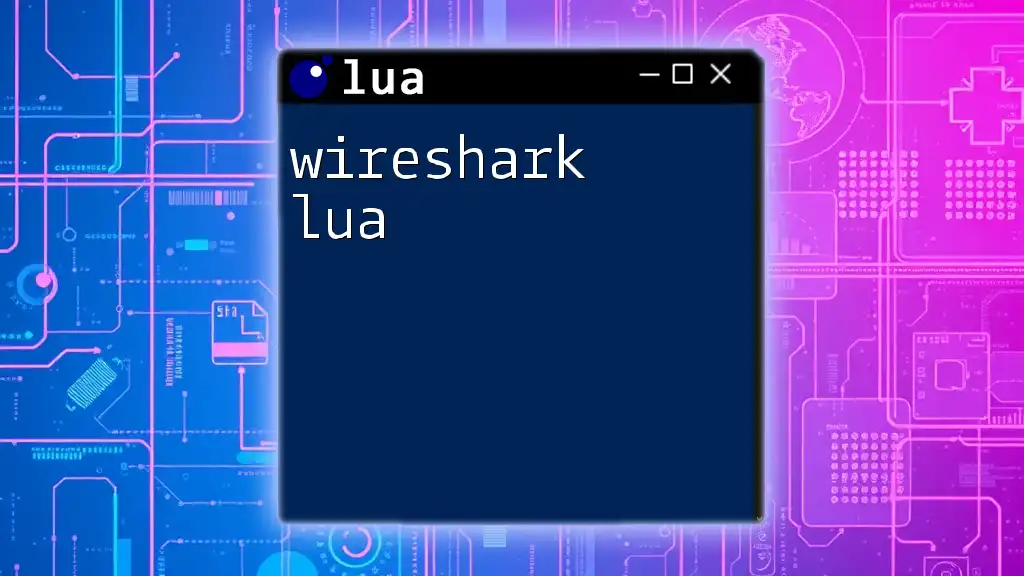
Tables: The Core Data Structure
Introduction to Tables
Tables are the cornerstone of Lua's data management, supporting arrays, dictionaries, and more. They are flexible and dynamic, making them crucial for data representation.
Creating and Manipulating Tables
Creating a table is simple and allows for easy manipulation of data stored within it.
Example: Code snippets to create, insert, and delete elements from tables:
local fruits = {"Apple", "Banana", "Cherry"}
-- Insert an element
table.insert(fruits, "Orange")
-- Delete an element
table.remove(fruits, 2) -- Removes 'Banana'
for i, fruit in ipairs(fruits) do
print(i, fruit)
end
Using Tables as Arrays and Dictionaries
Tables can operate as both arrays and dictionaries.
Example: Demonstrating both usages:
-- As Array
local colors = {"Red", "Green", "Blue"}
print(colors[1]) -- Outputs: Red
-- As Dictionary
local person = {name = "Alice", age = 30}
print(person.name) -- Outputs: Alice
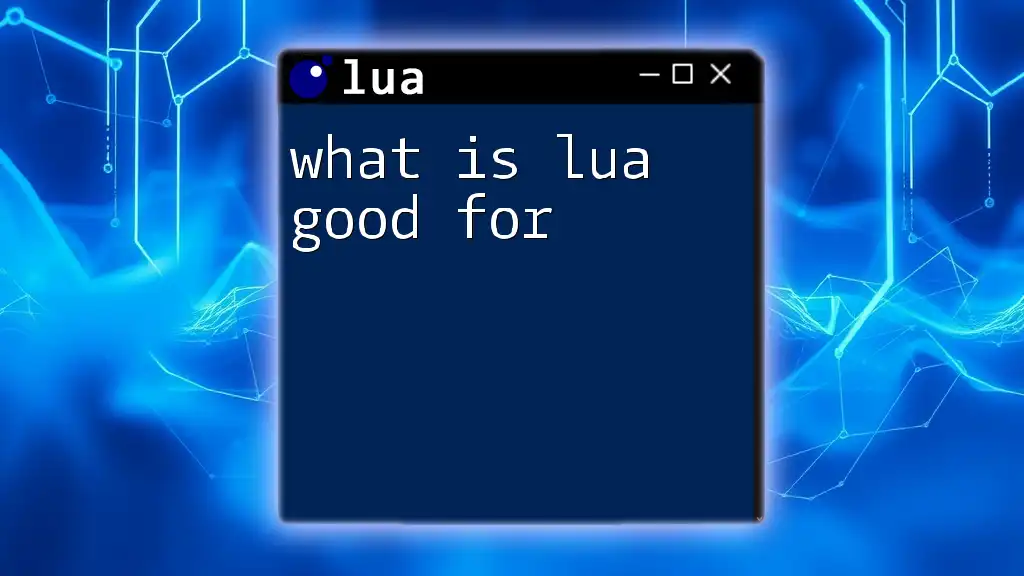
Error Handling in Lua
Introduction to Error Handling
Error handling is vital in development, enabling programmers to anticipate and manage potential pitfalls in their code.
Using Pcall for Safe Code Execution
The `pcall` (protected call) function allows the safe execution of functions, preventing runtime errors from breaking your application.
Example: Code demonstrating `pcall` usage:
local function riskyFunction()
return 10 / 0 -- This will cause an error (division by zero)
end
local success, result = pcall(riskyFunction)
if success then
print(result)
else
print("An error occurred: " .. result)
end
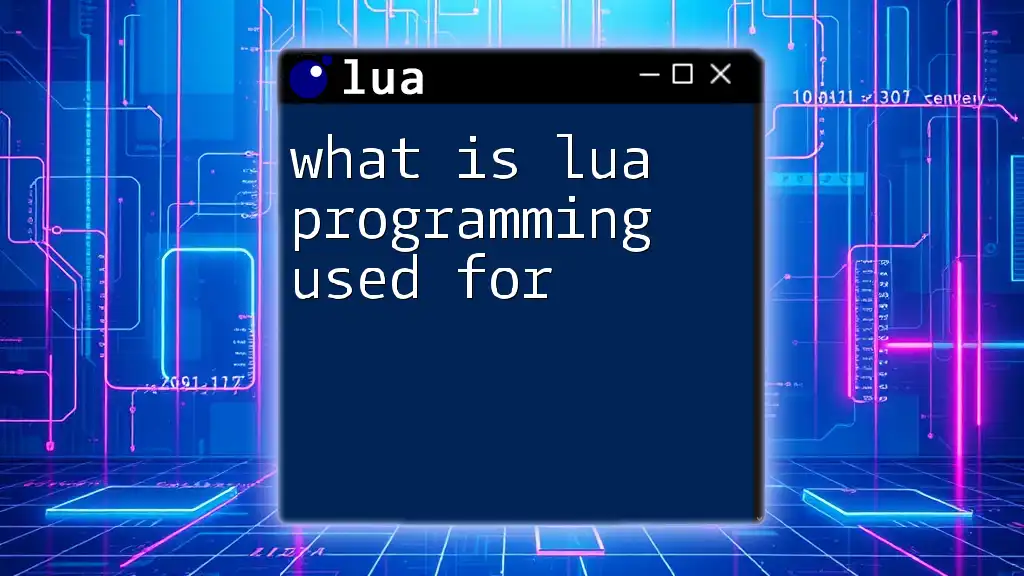
Conclusion
In summary, understanding what Lua is and its functionalities can open many doors for aspiring developers. The language's lightweight nature, combined with its versatility and ease of learning, makes it an excellent choice for various applications, from game development to web solutions.
As you embark on your journey with Lua, consider exploring further through practical exercises and hands-on projects. For a more interactive experience, join our upcoming courses to accelerate your learning. Whether you’re automating tasks or developing complex systems, Lua offers tools that help you succeed.
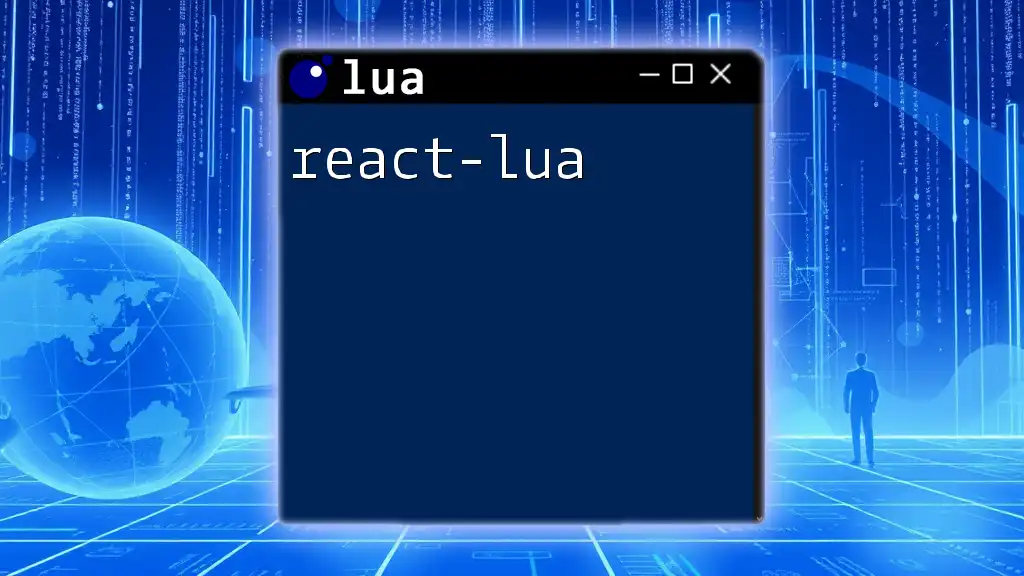
Additional Resources
Books and Online Tutorials
We recommend exploring resources such as:
- "Programming in Lua" by Roberto Ierusalimschy
- Official Lua documentation
Community Forums and Support
You can discover vibrant Lua communities on platforms like Stack Overflow, Lua Users Wiki, and the Lua mailing list, where experienced developers share insights.
Upcoming Workshops
Stay tuned for our upcoming Lua workshops and training sessions, designed for beginners and seasoned programmers alike.
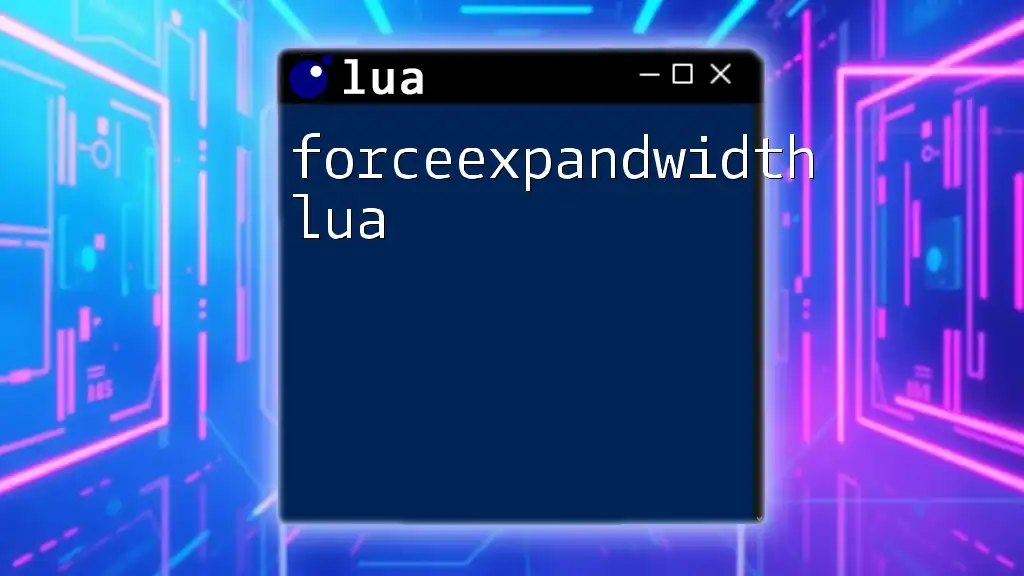
Call to Action
To stay updated and improve your Lua skills, be sure to sign up for our newsletter or follow us on our social media platforms! For any inquiries or further information about our courses, feel free to contact us directly.

